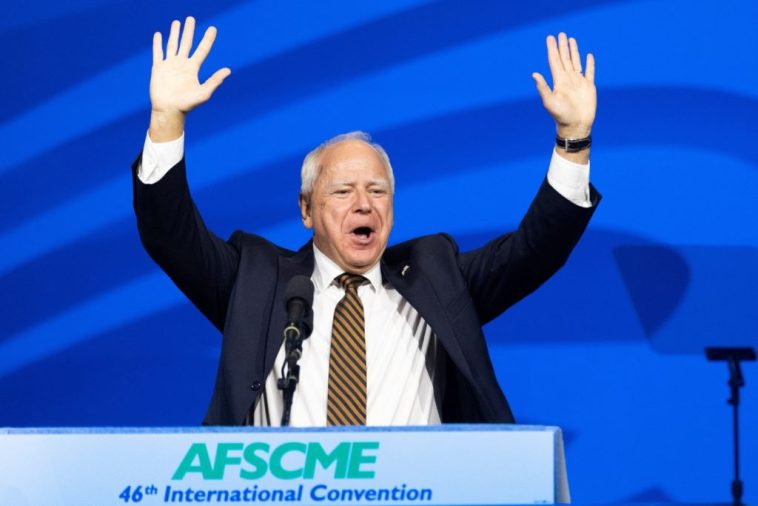In the aftermath of Kamala Harris’ decisive defeat by former President Donald Trump, the Harris campaign has quickly begun assessing where things went wrong — and sources close to the campaign say Vice Presidential pick Tim Walz is at the top of the list. Harris passed over other potential running mates, including Pennsylvania Governor Josh Shapiro, a choice many advisors are now questioning, given Pennsylvania’s crucial swing-state status.
Fox News reporter Jacqui Heinrich reported that “the blame game has begun inside Harris world,” detailing how campaign insiders see the selection of Walz as a misstep. Lindy Li, a Harris-Walz surrogate and DNC National Finance Committee member, pointed out that Shapiro might have been a stronger choice. “People are wondering tonight what would have happened had Shapiro been on the ticket,” Li remarked, noting that Shapiro’s moderate reputation could have countered Trump’s messaging of Harris as a “San Francisco liberal.”
Li also mentioned that Walz’s leadership during the 2020 Black Lives Matter protests, particularly the unrest in Minnesota following George Floyd’s death, has not been forgotten. Many feel that Walz’s handling of the crisis — as well as his association with controversies involving alleged ties to China and inconsistencies in his past statements — contributed to his lack of appeal as Harris’ running mate.
Beyond Walz, insiders say Harris’ own messaging and campaign choices may have hindered her ability to connect with voters. Li pointed to a key misstep during an appearance on The View, where Harris stated she “couldn’t think of a single thing she would do differently” from the Biden administration. According to Li, this was an opportunity for Harris to show Americans she would tackle key issues like border security and inflation more aggressively, and her missed chance hurt her with undecided voters.
Moreover, the Harris campaign’s decision to use the same strategies from previous cycles, labeling Trump a “fascist” and comparing his supporters to extremists, is being reevaluated. Campaign insiders, including Li, suggest that this rhetoric did not resonate with voters and may have further solidified support for Trump rather than sway it.
As the Harris team takes stock of their missteps, the question remains whether Democrats will adjust their strategy for the future or continue down a path that has proven ineffective in key battleground states.
The blame game has begun inside Harris world.
Harris-Walz surrogate @lindyli, a member of the DNC National Finance Committee and PA commissioner tells me:
– Tim Walz was a bad choice of running mate, Shapiro would have carried the blue wall states.
Li: “People are wondering…— Jacqui Heinrich (@JacquiHeinrich) November 6, 2024


